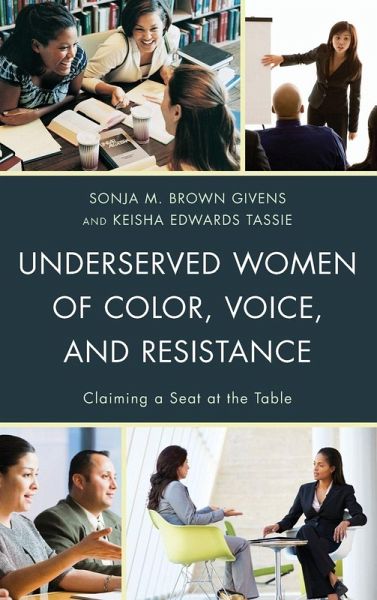
Underserved Women of Color, Voice, and Resistance
Claiming a Seat at the Table
Herausgeber: Givens, Sonja M Brown; Tassie, Keisha Edwards

PAYBACK Punkte
57 °P sammeln!
This book argues that contemporary research on the lives and experiences of women of color tends to neglect the influence of women’s perceived access to voice on how they manage tensions related to race, class, and gender. This book explores the politics of pursuing voice by women of color across various social contexts.














